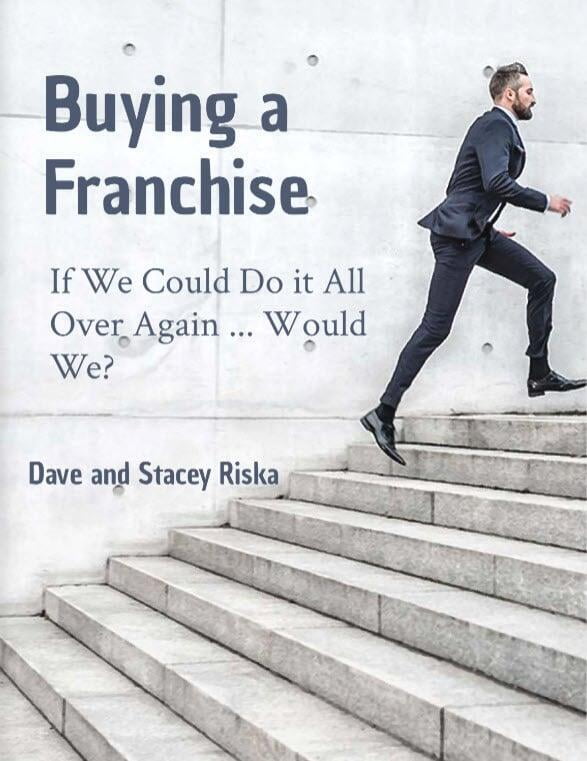
An often game-changing topic that’s too often overlooked: planning your exit strategy! Whether you're just starting your journey or already knee-deep in it, knowing how you’ll ultimately transition out of your business is essential.
Why? Because a well-thought-out exit strategy isn’t just about cashing in — it’s about achieving your “why” and setting yourself up for the lifestyle you dreamed of when you started. So, buckle up as we explore five exit strategies and some real-life stories on why planning matters.
The Power of Planning Your Exit
When you start your business, you’re excited and focused on growing it. But how often do you stop to think about the end result? Deciding early on what your business will eventually become not only helps you stay aligned with your purpose but can also lead to maximizing your return when it’s time to move on. Here’s what you need to know:
Your “Why” Matters – Clarifying your end goal can guide every business decision. When you know what you’re working towards, be it a family legacy or financial freedom, you can make smarter choices along the way.
Starting Early Saves You Later – Think about it like a road trip; if you don’t know your destination, how will you map the best route? Having an exit strategy early gives you a clear path, even if it changes along the way.
Five Common Exit Strategies for Franchisees
Let’s explore the five popular ways franchise owners exit their businesses:
Third-Party Sale: This is the classic exit strategy — selling your franchise to someone outside the business. If you plan to build the business and sell it for profit, you’ll want to maximize growth, brand value, and financials early.
Succession Planning: For franchisees who want to create a family legacy, passing the business down to a family member is a powerful choice. It requires a special kind of preparation, though, to ensure a smooth transition and continued growth.
Employee Buyout: Sometimes, an employee who’s been with you since the start may want to take over. In this case, you can arrange an earn-out or a gradual buyout, which allows an employee to purchase the business while ensuring a smooth transition.
Franchisor Buyback: Many franchises have clauses allowing the franchisor to buy back the business if you decide to sell. If this option is in your franchise agreement, you’ll want to explore this with your franchisor early to know your options.
Closing the Doors: This one’s a last resort. If the business isn’t viable, you may end up simply closing. While it’s not ideal, having a plan for even this scenario can still provide a more graceful exit.
Real-Life Stories: The Impact of Planning
Sometimes, theory meets reality in unexpected ways. Here’s a look at two scenarios where having an exit strategy (or not) made all the difference.
The Well-Planned Exit: One client did exceptionally well and grew their business, but life threw them a curveball — a cross-country move. They weren’t in a rush to exit, so with a plan in place, they optimized their finances, retained customers, and secured a nice profit in the sale. This success was only possible because they prepared ahead and worked the process methodically.
The Rushed Exit: In contrast, we recently spoke with someone who hadn’t planned for the future. They hadn’t invested enough time or marketing into the business, and now they needed to exit quickly. Unfortunately, because the business wasn’t doing well, they had few options. They ended up closing shop without much return. Planning ahead could have helped them avoid this tough situation.
Key Steps to Prepare for Your Exit
Thinking about your exit doesn’t mean you’re giving up — it means you’re preparing for future freedom! Here are actionable steps for a smooth exit:
Keep Financials Clean and Up-to-Date: Buyers want organized financials. If your financials are messy, they won’t feel confident in your valuation.
Maintain Customer Loyalty: A loyal customer base boosts your business’s value and makes it more attractive to buyers.
Document Marketing and Operations: When you exit, buyers are purchasing a proven system. Documenting your processes can increase the value and smooth the transition.
Consult the Experts: Reach out to your franchisor, accountants, and business brokers. Each can provide crucial insights that help you exit strategically and maximize your profit.
Common Mistakes to Avoid
Many franchisees make these costly mistakes when planning their exit:
Waiting Too Long: Life throws surprises. Waiting until something forces you to exit puts you in a reactive position, leading to rushed decisions and potential financial loss.
Ignoring the Financials: Without accurate records, your business may sell for less — if at all.
Avoiding Professional Help: Experts in franchising and business valuation can help structure the best deal, ensuring you don’t leave money on the table.
Thinking About Buying a Franchise? Start With the End in Mind!
As franchise owners with years of experience, we know the value of a well-crafted exit strategy. Even if you’re just getting started, planning for your future now will pay off when it’s time to move on. If this blog has sparked some thoughts about your own business or future, don’t hesitate to reach out. We're here to support your journey from start to finish.
Remember, it’s never too early to plan your exit!
What's Your Next? - Podcast
 | Author BioI’m Stacey Riska aka “Small Business Stacey”, your franchise placement specialist. I help aspiring business owners find the PERFECT franchise so they can get to the next level in life and business. |


